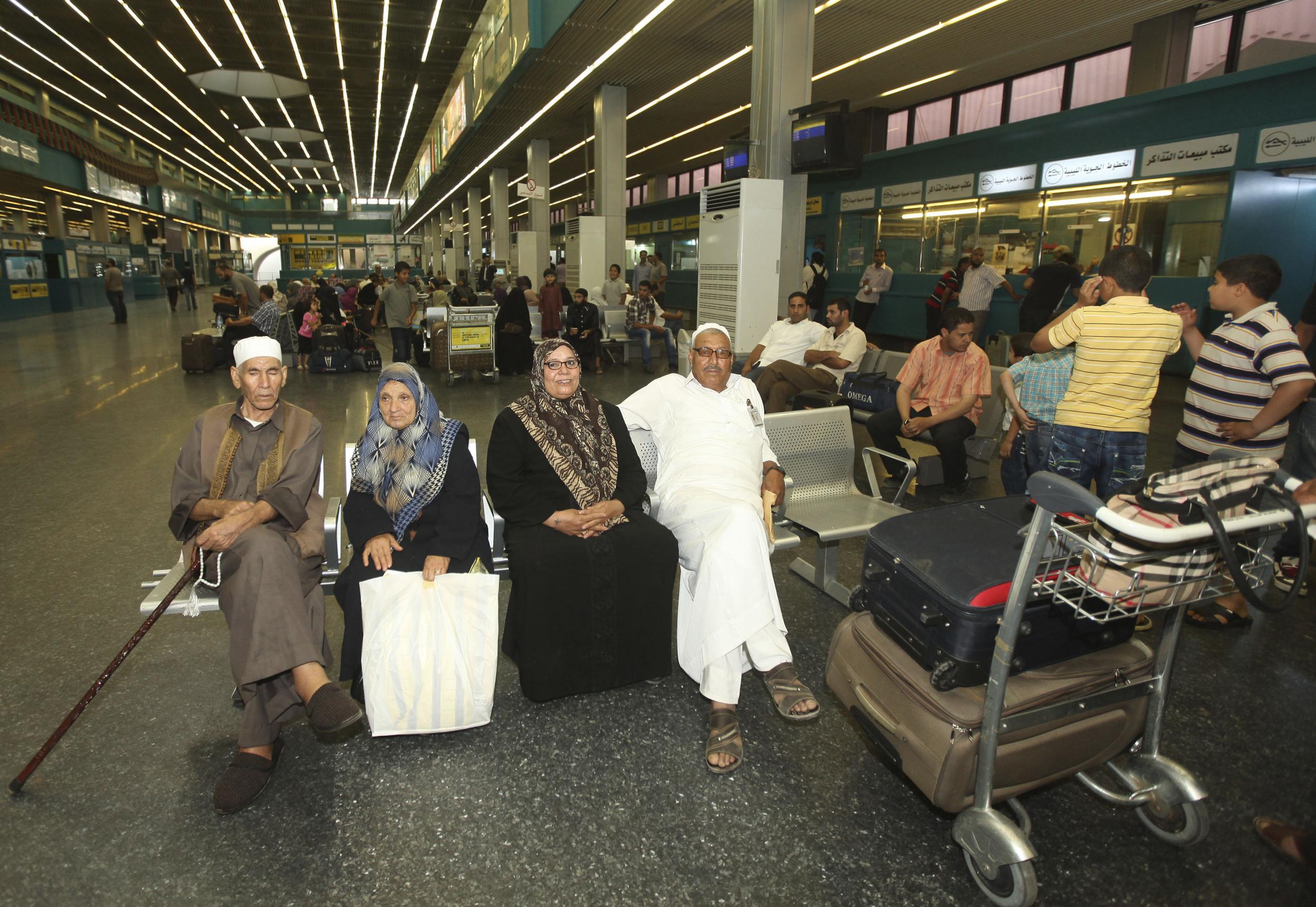This is the other travel ban against Libyans that people aren’t talking about
Coming six years after the protests initiated by women in Benghazi which led directly to the Libyan revolution, the claim that women represent a threat to national security, and cannot therefore travel unaccompanied, could be taken as a strange complement to our political effectiveness

Your support helps us to tell the story
From reproductive rights to climate change to Big Tech, The Independent is on the ground when the story is developing. Whether it's investigating the financials of Elon Musk's pro-Trump PAC or producing our latest documentary, 'The A Word', which shines a light on the American women fighting for reproductive rights, we know how important it is to parse out the facts from the messaging.
At such a critical moment in US history, we need reporters on the ground. Your donation allows us to keep sending journalists to speak to both sides of the story.
The Independent is trusted by Americans across the entire political spectrum. And unlike many other quality news outlets, we choose not to lock Americans out of our reporting and analysis with paywalls. We believe quality journalism should be available to everyone, paid for by those who can afford it.
Your support makes all the difference.Just weeks after the people of Libya found themselves subject to Donald Trump’s travel ban, the country’s women experienced a terrible sense of déjà vu. The military governor in eastern Libya, Abdul Razzaq al Nadhuri, appointed by General Khalifa Haftar, decreed that women under the age of 60 could not travel outside the country without a male guardian.
The ban has prompted resentment and criticism online. Libyan human rights activists called the ban a gross violation of fundamental rights, in direct contravention of Libya’s interim constitutional declaration, and made without authorisation, mandate or jurisdiction. In an extraordinary appearance on national television, the governor justified the ban on the basis that Libyan women represent a threat to national security.
After days of women protesting in the streets of Benghazi, the governor issued another decree cancelling the previous announcement, only to enforce a wider ban on all women and men between the age of 18 to 45. None can travel outside of Libya without a security clearance.
The justification this time was to stop Libyans from joining terrorist groups. This is quite bizarre given that after the revolution, the problem has been terrorist groups coming into Libya, rather Libyans joining them. Since the revolution, Libya has become a hotbed for many global terrorist groups like Ansar Sharia and Isis due to the lack of secure borders. With the continuous and uncontrolled flow of arms fuelling the civil war and the deteriorating humanitarian conditions, Libyans find themselves forced to travel – if they can afford it – to get even basic medical treatment. Libyan activists too have been forced to leave their country under the threat of terrorist attack and persecution.
Coming almost exactly six years from the start of the protests initiated by women in Benghazi that led directly to the Libyan revolution, the claim that women represent a threat to national security could perhaps be taken as a strange compliment to the effectiveness of women’s political activism in Libya.
Though just as women had become symbols of a better future for Libya, two brutal acts came to symbolise the country’s fall into chaos. In June 2014, the lawyer and activist Salwa Bugaighis was assassinated by gunmen after returning home from voting in the general election. Just three weeks later, Fariha Al-Berkawi, one of 33 women elected to Libya’s parliament, was also gunned down.
Ever since, women activists and human rights defenders have been the targets of attacks and threats ranging from character assassination, to assault, to actual assassination. Civil society activists have also been subject to a systematic crackdown and repressive measures by the disputing governments of Libya.
As I write, civilians in Abu Salim, Tripoli, are under indiscriminate shelling as rival militias – including those loyal to the internationally recognised National Accord Government – continue to fight. While in the east, where the Libyan National Army now has the backing of Russia, we have seen the shame of the travel ban.
It is a depressing story that after a revolution fought for dignity, freedom and social justice, and all the lives sacrificed for these causes, Libyans are struggling for their basic human rights and safe corridors through violence.
This is yet another reminder of the failure of the international community in addressing the needs of countries in transition, instead applying the so-called democratic tool kit as a blueprint. Libya needed, and still needs, a comprehensive strategy that addresses the roots causes of its conflict – unchecked militarisation.
If the international community continues to pay lip service to women’s rights and a “political solution” without really addressing the real issue at stake, more women’s rights defenders and human rights activists will be silenced, if not sacrificed.
Join our commenting forum
Join thought-provoking conversations, follow other Independent readers and see their replies
Comments